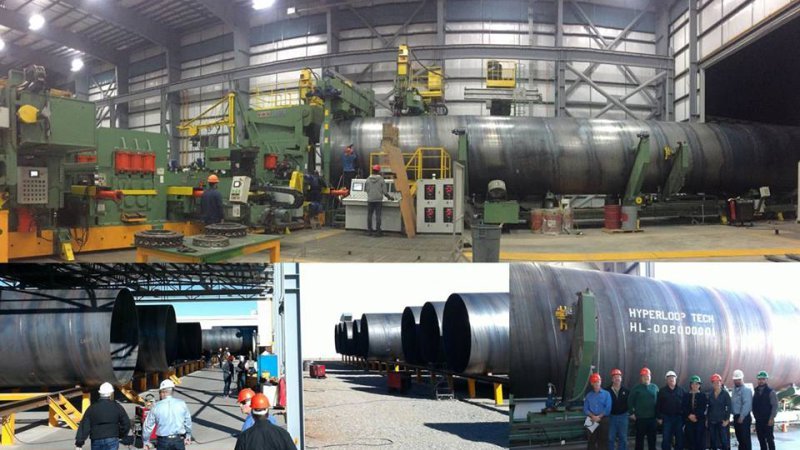Hyperloop Technologies CTO: 'This Is Real, This Is Happening'

Hyperloop Technologies co-founder Brogan BamBrogan discussed some of the company's goals at the SAE 2016 World Congress in Detroit this week. In short, he's recruiting from companies with expertise in vehicle construction, engineering, tooling, and electric motors to speed up the Hyperloop's development.
The plans are ambitious. The company, which is planning to make passenger capsules that can travel in pressurized-air tunnels at speeds as fast as 700 miles per hour, estimates that the tunnels can be built at a cost of about $24 million per mile. With Musk previously estimating the 375-mile Hyperloop trip between San Francisco and Los Angeles taking as little as a half hour, that'd imply tunnel costs for that route at about $9 billion. Not including the low, low land-acquisition costs in California, of course.
BamBrogan, a former General Motors and Chrysler executive, says the company currently has about 140 engineers, and may add as many as 280 more by the end of 2017. Hyperloop Technologies is also building a two-mile-long prototype track near Las Vegas. Speaking at the SAE congress, BamBrogan said, "This is real. This is happening."
Other prototypes are already in the works. Musk's SpaceX rocket-launching company said in January that a one-mile Hyperloop track would be built by infrastructure company AECOM near SpaceX's Southern California headquarters. Meanwhile, Hyperloop Transportation Technologies, a different company from Hyperloop Technologies, also filed for permits to construct a prototype track on a five-mile parcel that runs parallel to Interstate 5 in California's Central Valley. That project may cost between $100 million and $170 million.
